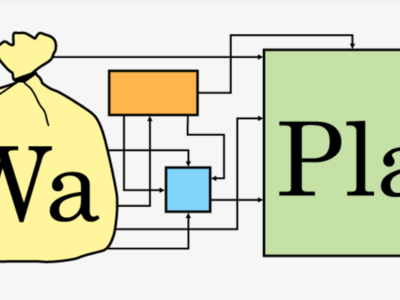

Globally, about 2,000 million tons of Municipal Solid Waste (MSW) are generated annually. In the past, high-income countries were responsible for the largest share of overall waste generated. However, Africa is projected to experience the highest growth in waste generation over the coming decades. It is estimated that the overall generation of MSW in Africa will increase from the current 170 million tons per year to 500 million tons by 2050.
Improper management of MSW in Africa is associated with severe environmental problems, such as waste littering, open burning, and the emission of toxic gases like dioxins, pollution of ground and surface waters, and significant greenhouse gas emissions from dumping and landfilling due to anaerobic waste degradation. Recycling of MSW is practiced to some extent but is largely left to the informal sector, which plays an important role in resource conservation.
The reasons for improper MSW management in African cities are manifold, ranging from limited financial resources and lack of environmental awareness to missing policies, weak enforcement, and limited know-how in waste management. This is further compounded by the fact that universities and educational institutions in Africa provide little to no education or training in solid waste management.
The overall aim of the KoEF project entitled Integrated Solid Waste Management in African cities for enhanced emission reduction was to create a joint knowledge base for waste management among partner institutions to enhance environmental education and research in the African partner institutions. Special focus was given to three relevant topics:
- Evaluation of waste management systems via Material Flow Analysis and Life Cycle Assessment.
- Waste characterization practices in Austria, Egypt, Uganda, and Zambia.
- Bio-waste management.
For evaluating waste management systems, the software WaPla (Waste Management Planning Tool) developed by TU Wien was adapted for African cities and distributed among the partner institutions. Trainings for the application of this software were conducted, enabling its use in teaching and research at these institutions.
In the area of waste characterization, practices and standards for determining the quantities and composition of MSW in different countries were jointly discussed. The results were presented at a workshop during the International Waste Symposium in Sardinia in October 2023. A joint publication on waste characterization in different parts of the world is currently being developed, with an extended regional focus to include Asian and Latin American countries, where cities face similar challenges. For bio-waste management in Africa, current challenges regarding the treatment and utilization of bio-waste were discussed. A literature review on typical pollutants in bio-waste has been completed and is under review for publication. Additionally, PowerPoint presentations on proper bio-waste management for teaching purposes have been produced by the project partners.
The KoEF project has successfully built a foundation for improved waste management practices and education in Africa, paving the way for more sustainable environmental practices in the future.
